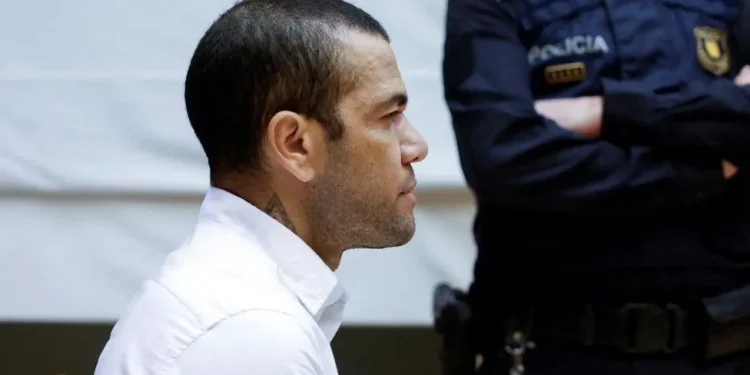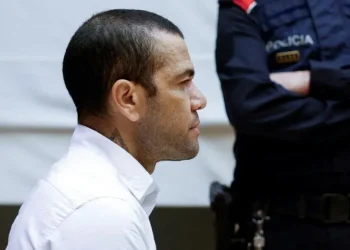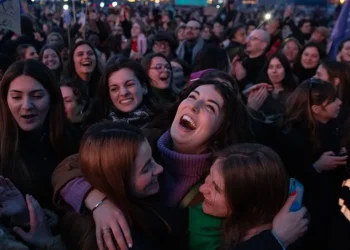A court in Spain has found former Barcelona and Brazil footballer Dani Alves guilty of raping a woman in a Barcelona nightclub.
He has been sentenced to four and a half years in prison.
The 40-year-old, who is one of the most decorated footballers in history, had denied sexually assaulting the woman in the early hours of 31 December 2022.
His lawyer had asked for him to be acquitted and Alves can appeal against the sentence.
Alves had been accused of luring the woman to a toilet in a VIP section of the nightclub and had argued that she could have left “if she wanted to”. However, the court found that she did not consent.
In a statement, the court said there was evidence other than the victim’s testimony that proved that she had been raped.
It also ordered him to pay €150,000 (£128,500) to the victim.
Alves has been held in pre-trial detention since January 2023 and during the course of this month’s trial he has changed his testimony on a number of occasions.
He first denied knowing his accuser only to later claim he had met her in the toilet but that nothing had happened between them.
He then changed his version of events again, saying that they had had consensual sex. “We were both enjoying ourselves,” he alleged.
Prosecutors said Alves and his friend had bought champagne for three young women before asking one of them to accompany him to another area with a toilet which she had no knowledge of.
At that point they argued he turned violent, forcing the woman to have sex despite her repeated requests to leave.
Alves played more than 400 times for Barcelona, winning six league titles and three Champions Leagues across two spells with the club. He was also part of Brazil’s 2022 World Cup squad.
The prosecution had asked for a nine-year prison sentence. In Spain, a claim of rape is investigated under the general accusation of sexual assault, and convictions can lead to prison sentences of four to 15 years.
The law was changed recently to enshrine the importance of consent under the so-called “Only Yes is Yes” principle.
source: BBC



















































